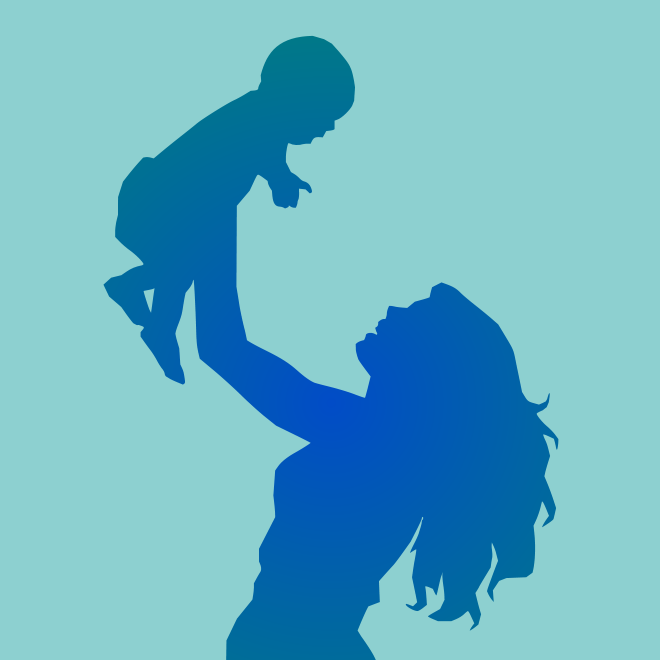
Genetic Screening – PGS or CCS
Pre-implantation genetic screening, or PGS, is also known as comprehensive chromosome screening, or CCS. These techniques involve taking cells from a blastocyst embryo and performing genetic analysis and freezing the embryos while waiting on the test results. This testing allows us to determine if the embryo has the correct number of chromosomes. Abnormalities in the number of chromosomes is a significant barrier to achieving a pregnancy and one of the leading causes of miscarriages. By screening for the appropriate number of chromosomes, the lab staff can select the embryos that are genetically normal. Using genetically normal embryos combined with a highly refined freezing technique called vitrification allows for a higher rate of success with fewer miscarriages. Patients have been experiencing approximately 70% chance of success using one embryo that has been genetically tested and found to be normal. Genetic screening of embryos will not eliminate all possible chromosome abnormalities, miscarriages, or birth defects, however with higher rates of success and fewer miscarriages, patients are able to achieve their goals of having a healthy baby.
Not all clinics have the same level of success with their PGS / CCS programs and many are still struggling to perfect vitrification. California IVF Fertility Center has been performing PGS since 2006, and we have successful live births from vitrified eggs and embryos dating back several years. While many clinics continue to struggle with their programs, California IVF Fertility Center is expanding the use of PGS / CCS to our California Conceptions Donor Embryo Program. California Conceptions has been a pioneer in the donor embryo field and we are now taking it to the next level with advanced genetic testing of embryos. Gender selection services are also available at no additional charge.
Learn more about IVF with genetic screening (PGS CCS) at California IVF Fertility Center in Sacramento.

High success rates make embryo donation
more affordable than using an egg donor or adopting
By using donor sperm and donor eggs, the resulting embryos provide a very high rate of success and a significantly lower chance of abnormalities compared to people using in vitro fertilization and their own eggs and sperm. After the sperm are used to fertilize the eggs, embryos are cultured (grown) to day 5 or 6, also known as the blastocyst stage. The embryos are then transferred to patients that have been scheduled to have a transfer that is synchronized to the egg donor’s cycle. Any remaining embryos are then stored with a highly successful freezing method known as vitrification.
Cost Effective
By allowing multiple patients to share the same egg donor and sperm donor, the treatment costs are greatly reduced compared to the cost of using and egg donor. For patients considering oocyte donors and their partner’s sperm, California IVF Fertility Center also has a donor egg program that offers a very affordable shared egg donor program.
About the Donors
All donors who choose to anonymously donate eggs through this program are thoroughly screened for infectious diseases and meet all state and federal regulations. Donors that provide embryos have also been screened for health risks including inherited disorders, mental illness, and other traits that would be undesirable to most parents. It is not possible to avoid all health risks and birth defects, but this is true for any pregnancy. Patients receive detailed information about the donors and must accept a match before moving forward with a transfer. The information packet for the donors includes their health history, family history, surgeries, and much more. Information provided in our program is similar to the information that would be provided with any egg donor program or sperm bank. This gives the recipient the opportunity to review a potential match and feel comfortable in moving forward with a pregnancy with donor embryos.
The donors waive their parental rights to the embryos and children at the time of donation. The donor embryo recipients (intended parents) become the legal parents of the donated embryos. The recipient of the donated embryos is able to experience pregnancy and birth as with any other pregnancy.

Other Considerations
There is a possibility of twins occurring as a result of the embryo transfer procedure. The recipients of the donated embryos may elect to transfer one embryo instead of two. This may decrease the possibility of a pregnancy occurring slightly, but will decrease the risk of twins to less than 3%. By offering three attempts at pregnancy, the program allows patients to elect to transfer a single embryo with very little reduction in overall success.
Since age does not affect a woman’s ability to get pregnant with donor embryos, the chances of pregnancy remain very high. Through our years of operating a donor egg program and the California Conceptions Donor Embryo Program, we have found that a normal uterus and high quality embryos result in very high rates of success.
Since the intended mother carries the pregnancy and the embryos came from an anonymous donation, there are no legal challenges to parental rights. Women giving birth to a baby will have their name placed on the baby’s birth certificate and will have the opportunity to name the father of the baby for the purpose of the birth certificate. The parents will have the option of disclosing information about the donation process, or keeping the information private. Patients should discuss the topic of disclosure to the children born from embryo donation or egg donation prior to starting any treatment.
Know Your Options
Pregnancy with donated embryos may not be a good option for everyone, but for many women and their partners, it offers the opportunity to build their family without significant legal and financial burdens. Couples facing the lengthy process of adoption or high costs of infertility treatments often find pregnancy with donated embryos, or embryo adoption, an excellent alternative to donor eggs or traditional adoption. Please do not hesitate to contact us if you have any questions about why using donated embryos offers such high chances of success.
Traditional Donated Embryos
Traditional donated embryos are the embryos being donated by another person or couple after they have completed their own fertility treatments. While these embryos are not part of the California Conceptions Program, California IVF Fertility Center does participate in traditional donated embryo transfers. Very few people elect to donate their embryos, and this results in many embryos being frozen for year. California IVF offers all of our IVF and donor recipient patients the option to donate their extra embryos to another person or couple. Occasionally there are embryos available for traditional donated embryo treatments.
Donor Oocytes
Egg quality issues may be overcome by using an oocyte donor and the partner’s sperm. We encourage our patients to explore all of their available options. Patients frequently travel from out of state or from other countries to participate in the California IVF oocyte donor program due to the very competitive pricing that is often encountered in larger cities such as San Francisco, Los Angeles, New York, and most major cities. Canada and Australia have very limited donor services and we have years of experience coordinating overseas treatments.
Adoption
There are many adoption resources available on the Internet. Adoptions can be very rewarding for couples despite the potential for significant obstacles. Several patients have participated in our donor embryo program while waiting for their adoption process to finalize. Ultimately individuals must choose the program that is right for them. Donor embryos are often referred to as embryo adoption, though this terminology is not accurate since there isn’t a legal adoption process like an adoption of a child that is already born. We will gladly answer questions about our program so patients can determine if it’s the right option for them.
Submit a Donated Embryo Recipient Profile Form
to Start Being Matched to Donor Embryos


